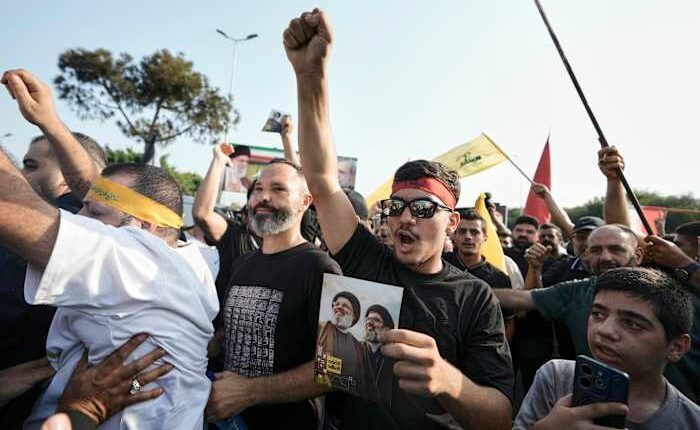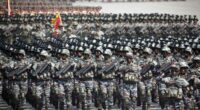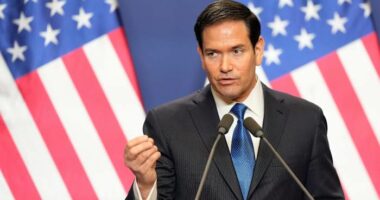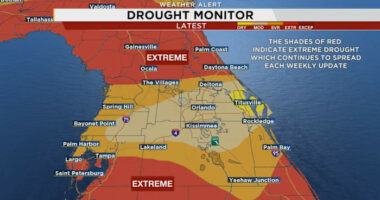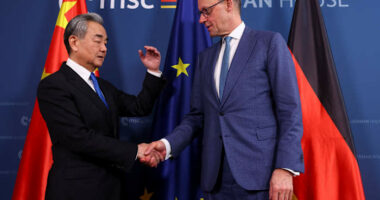Share this @internewscast.com
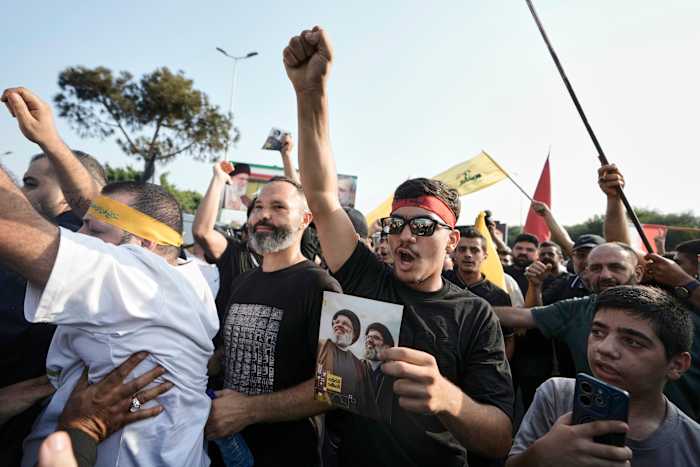
BEIRUT – The leader of Lebanon’s militant Hezbollah group on Friday firmly rejected disarmament, declaring that last week’s directive from the national government to remove the Iran-backed group’s weapons by year-end benefits Israel.
Naim Kassem criticized the government’s decision to remove “the defensive weapons of the resistance, its people and Lebanon during an aggression,” suggesting it would lead to the targeting of “resistance fighters and their families,” forcing them to abandon their lands and homes.
He argued that the government should have instead asserted its authority and expelled Israel from Lebanon. Speaking during a televised address commemorating a Shiite religious event, he claimed that “the government is serving the Israeli agenda.”
Kassem warned that if the current tensions escalate into domestic strife, the government would bear the responsibility. He emphasized that Hezbollah and its Shiite ally, the Amal movement, have refrained from mobilizing street protests to allow for further dialogue. The Amal movement, once a main faction in Lebanon’s 1975-1990 civil war, remains a significant political entity led by Parliament Speaker Nabih Berri.
However, he stated that should there be a decision to demonstrate, protesters “will be all over Lebanon and head to the U.S. embassy,” without providing further details.
The issue of Hezbollah’s armament remains a contentious topic in Lebanon, with opposition groups arguing that only the state should possess weapons.
The Lebanese government voted last week for a U.S.-backed plan to disarm Hezbollah by the end of the year and implement a ceasefire with Israel.
The small Mediterranean country has been under international pressure to get Hezbollah to lay down its arms since the 14-month war with Israel that ended with a U.S.-brokered ceasefire in November.
However, the Hezbollah leader said his group will only discuss a national defense strategy over its weapons once Israel withdraws from Lebanon and stops its almost daily airstrikes that have killed scores of Hezbollah members since the war’s end.
“The resistance will not hand over its weapons as the aggression continues and occupation remains,” Kassem said, adding that the group will fight a long battle if needed.
The Israel-Hezbollah war weakened the Iran-backed group and left much of its military and political leadership dead. The war killed more than 4,000 people in Lebanon, displaced over 1 million and caused destruction that the World Bank said will cost $11 billion in reconstruction.
After the war ended, Israeli forces stayed in five overlooking locations inside Lebanon.
Israel has accused Hezbollah of trying to rebuild its military capabilities. Israel’s military has said the five locations in Lebanon provide vantage points or are located across from communities in northern Israel, where about 60,000 Israelis were displaced during the war.
Copyright 2025 The Associated Press. All rights reserved. This material may not be published, broadcast, rewritten or redistributed without permission.
